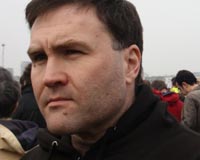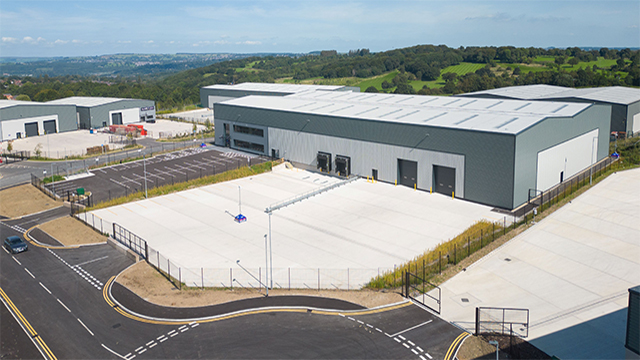With just four candidates declared – one of them dressed as a gorilla – and still no vacancy to be filled, the Birmingham mayoral race is hardly a heavyweight political show-stopper.
Yet the mayoral election – likely to be held in 2013 if a referendum supporting the mayoral system is approved next year – will decide who runs Europe’s largest local authority. If the mayor’s mandate is extended beyond the city of Birmingham into neighbouring districts such as Solihull, as many in the city hope, the new mayor would have one of the largest power bases in the UK. He or she would rival London mayor Boris Johnson.
Brummie Boris
The idea of a Brummie Boris is already attracting interest, both inside the city and out. Lord Andrew Adonis – transport secretary in Gordon Brown’s cabinet, speaking at this spring’s annual Lunar Society lecture – slated the city’s low productivity, low skills, low levels of employment and high dependence on public sector spending. Adonis called for “radical transformation under strong, purposeful civic leadership” as a solution, advocating an elected mayor.
Privately, many property leaders in the city agree. For years, they have complained about Birmingham council’s low-key personalities and their lack of impact.
Sion Simon, Labour hopeful in the mayoral race, says he hopes a directly elected mayor could mean a fresh start for the fraught relationship between the local council and local businesses.
“The business community in Birmingham long ago concluded that you simply cannot do business with the city council,” he says. “The current council bureaucracy, with its defensive, rigid, silo structure of competing baronies, is suffocating businesses in Birmingham rather than enabling it. Business has understandably turned its back on the council and entrepreneurs and innovators that have succeeded have done so despite, rather than because of, the city administration.”
An elected mayor would have wide powers over economic development and regeneration, and would oversee strategic planning. Getting the right mayor could make a big difference to commercial property, say surveyors.
Today, there are broadly two overlapping schools of thought among property professionals. Some think that Birmingham needs a big thinker who can lead the fight for the infrastructure investment the city needs. Others think that Birmingham needs a big-hitter, a personality powerful enough to act as an instantly recognisable ambassador for the city.
National credibility
Stephen Hollowood is the Birmingham-based head of the public sector team at GVA. He says: “Having a strong, talented individual to promote Greater Birmingham is important. An elected mayor can become a focus for energy and new ideas. But it depends on having the right person – which means someone with national credibility.”
He adds: “It is hugely important that the mayor has the credentials and contacts. National credibility is essential, otherwise it won’t work on delivery, because to deliver means working with regional and national bodies. Working with those bodies is the key to it all.”
Hollowood is not uninterested in policy – far from it – and points to the importance of the mayor building the right kind of relationship with the new Greater Birmingham & Solihull Local Enterprise Partnership. He also believes that Birmingham needs to follow Manchester’s lead by being quicker to respond to national government initiatives. But for Hollowood, who the mayor is makes an enormous difference to whether he or she will be successful.
Gary Cardin, planning and development specialist and head of the Birmingham office at Drivers Jonas Deloitte, does not disagree, but says that the city needs a big thinker, rather than just a big personality, sitting in the mayoral chair.
“It’s not really an elected mayor that’s the issue, it’s the need for a new level of strategic thinking,” says Cardin. “We need the bigger picture on transport and infrastructure. We need the High Speed 2 rail line, and extensions to the Midland Metro. These are things the mayor could grapple with in a more strategic capacity. I would rather see less of the old school, more of a forward-thinking, dynamic, new brigade.”
For now, speculation on runners and riders is, at best, premature. Before a contest can take place in 2013 or 2014, Birmingham’s electorate will need to be persuaded to vote to create the post of elected mayor in a referendum, which is likely to take place next May. The omens are good: in a postal referendum held a decade ago, Brummies voted in favour of a mayoral system – but the council at the time decided not to proceed.
If the vote is repeated next spring, Birmingham could have its very own Boris within the next two years.
Who’s in the frame?
Former Labour minister and MP for Birmingham Erdington Sion Simon and veteran Labour council leader Sir Albert Bore are the most serious contenders so far to declare an interest.
A practised networker – Simon was one of the figures behind the attempted coup against Tony Blair in 2006 – he has long been on the campaign trail, recently speaking out against the disposal of Advantage West Midlands assets on the open market.
A posting on Simon’s Twitter page last month reported that “it would be nice to have others” competing for the mayor’s job. The latest candidate to throw his hat in the ring is fellow Labourite Sir Albert Bore, who declared he will stand last week. Bore is said to be a popular choice for the role.
Meanwhile, 71-year-old former policeman Ray Egan and TV anchorman “Uncle” Bob Warman are the only other names in the ring. Egan dressed as a gorilla for his recent campaign launch.
Former Labour cabinet minister Clare Short and former Labour minister and CBI boss Lord Digby Jones are also thought to be interested, but have yet to declare.
What happens next?
Progress on creating the position of elected mayor of Birmingham depends on the Localism Bill, currently going through parliament.
A “yes” vote in a referendum in May 2012 could lead to a mayoral election in 2013 or 2014, with the preference for 2013. During the transitional period, the council leader – currently Conservative Mike Whitby – would become shadow mayor. This could involve absorbing the role occupied by city council chief executive Stephen Hughes.
The number of city councillors could be cut back from today’s 120 to a more modest 80, or severely pruned to 40 if single-member seats are selected. The outcome will depend on amendments to the Localism Bill tabled in the House of Lords, which have yet to be debated.











